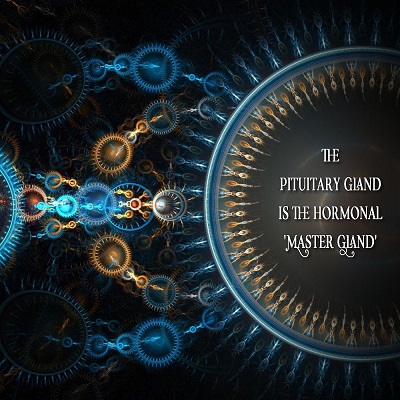 The body has a network of glands, called the endocrine system, that produces hormones for many and various functions. These hormones trigger and activate most of the body’s functions that we simply take for granted, as they are automatic responses. These glands themselves mostly respond to signals from a “master gland,” which is the pituitary gland.
The body has a network of glands, called the endocrine system, that produces hormones for many and various functions. These hormones trigger and activate most of the body’s functions that we simply take for granted, as they are automatic responses. These glands themselves mostly respond to signals from a “master gland,” which is the pituitary gland.
What the Pituitary Gland Does
The pituitary gland is a pea-sized gland, and although very small, it controls all the other hormones. Right above it is the hypothalamus, which sends messages to the pituitary gland, just like a communication center.
The pituitary gland sends signals to different parts of the body to release hormones into the bloodstream, regulating activities and functions to maintain an ideal environment. Primarily, this gland controls growth, metabolism and reproduction.
Pituitary Gland and Its Hormones
The pituitary gland has two parts-anterior and posterior lobes-which both release hormones. The anterior lobe produces the following hormones:
- Growth Hormone. This regulates the physical growth of bones and tissues. It’s also essential in processing nutrients and minerals.
- Thyroid-stimulating Hormone. Prompts the thyroid gland to produce thyroid hormones, which are crucial in metabolism and brain and nervous system development.
- Follicle-stimulating Hormone. This is vital for the production of estrogen, the growth of women’s egg cells, and the production of men’s sperm cells.
- Luteinizing Hormone. This hormone is involved in the production of the hormones estrogen and testosterone.
- Prolactin. This hormone stimulates the production of breastmilk.
- Adrenocorticotropic Hormone. This hormone prompts the adrenal gland to release cortisol and other steroid hormones.
- Endorphins. These hormones have an analgesic effect and can boost the ability to deal with pressure, making you feel better when you’re stressed.
- Enkephalins. These are similar to endorphins and can help relieve pain.
- Beta-melanocyte-stimulating Hormone. This hormone is essential to the pigmentation of the skin, protecting it from the UV rays. It also controls appetite.
Meanwhile, the posterior lobe secretes oxytocin and vasopressin.
- Oxytocin. This hormone plays a vital role in the contraction of the uterus during labor and in the production of breastmilk.
- Vasopressin. It’s also known as the anti-diuretic hormone, which controls the body’s water balance and prevents dehydration. It’s also essential in regulating blood pressure.
Pituitary Gland Conditions
Hormones can go out of balance, and the pituitary gland is no exception in experiencing disorders. Here are some potential pituitary gland conditions:
- Pituitary Tumor – This is a non-cancerous lump that may prevent the pituitary gland from producing hormones. It may also cause headaches due to the pressure it applies to the surrounding cells.
- Traumatic Brain Injury – A strong blow to the head can impact the pituitary gland, causing memory loss or changes in behavior.
- Cushing’s Disease – This happens when there’s an excessive amount of adrenocorticotropic hormone and cortisol.
- Hypopituitarism – When you are deficient in pituitary hormones, hypopituitarism occurs. It can occur due to tumors and traumatic brain injury.
- Prolactinoma – This is a noncancerous tumor that makes the pituitary gland produce excessive prolactin. It can lead to reduced estrogen and testosterone levels.
- Acromegaly – Occurs in middle-aged adults when there are too many growth hormones produced. It leads to excessive bone growth, particularly in feet and hands.
- Diabetes Insipidus – This happens when there’s a problem with the release of vasopressin hormones, which could lead to an imbalance in body fluids. It makes you feel thirsty all the time, and your urine becomes highly diluted.
- Empty Sella Syndrome – Occurs when the pituitary gland appears flat or shrunken inside the sella turcica that it fills under normal conditions.
Some of these disorders can be treated by restoring hormonal balance through hormone replacement and medications. Other cases may require pituitary surgery and radiation therapy. Your doctor will conduct a proper diagnosis and create a treatment plan based on your needs.
Keep Your Pituitary Gland Healthy
The pituitary gland plays a crucial role in the body’s various functions and processes. Being the master gland, it will have varying and profound effects when it stops working properly. As always, the best way to avoid experiencing pituitary conditions is by keeping it healthy.
Manage your stress to prevent excessive production of cortisol. Eating a nutritious diet and getting regular exercise will keep your overall health in good condition, which will also affect your hormones. Visit your doctor for a check-up if you are experiencing problems or have a family history of endocrine problems.






